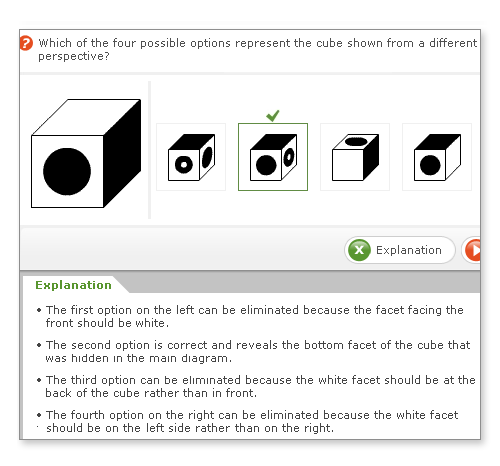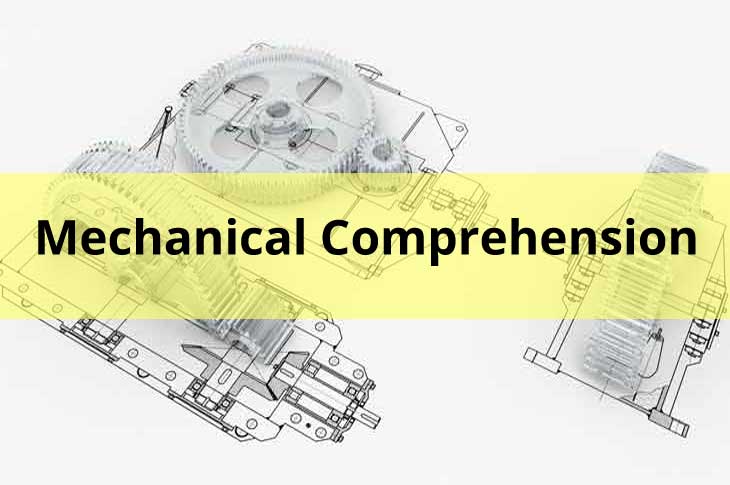Mechanical Maintenance Aptitude Test Study Guide
Mechanical aptitude tests are often paired with tests that also cover spatial relations. The ability to display mechanical aptitude is a multi-step process, and one of those steps often includes spatial relations. In many instances, the ability to display spatial ability is one of the greatest predictors of whether someone can display mechanical aptitude as a whole. While there is no evidence that proves an overall difference in intelligence between men and women, some research has shown a difference in cognitive abilities.
For example, on average, males do better on quantitative tasks and visual-spatial skills. Conversely, females tend to do better than males on the verbal sections of mechanical aptitude tests. This is not to say that these differences always exist in every type of mechanical aptitude test, but they have generally been found to be true.

Mechanical aptitude tests is a broad term for assessment tests evaluating mechanical understanding and mechanical knowledge. What questions can I expect? Mechanical aptitude test questions can be divided into four question categories. Page 1 Mechanical Comprehension Study Guide for the ASVAB. How to Prepare for the ASVAB Mechanical Comprehension Test General Information. The Mechanical Comprehension section of the ASVAB test is designed to measure your aptitude for understanding basic mechanics. This does not necessarily mean always knowing the technical terms, but you do. Welcome to the Plant Technician Skills and Abilities Practice Test. The purpose of this Practice Test is to help you get used to the questions on the tests that you will take and the speed.

However, on average, males have historically performed better than females on mechanical aptitude tests. Little to no research exists on why this is the case; however, part of the explanation may be that historically females have both steered away from and been steered away from professions and areas of study in which mechanical aptitude tests are required. While mechanical aptitude tests have a variety of uses, they are most helpful for employees and employers in the professions and industries that involve manufacturing and production, energy and utilities, automotive and aircraft mechanics, general installation/maintenance/repairpersons, skilled tradespersons (including electricians, welders, and carpenters), and heavy equipment operators. One of the more popular mechanical aptitude tests is the Bennett Mechanical Comprehension Test (BMCT). This test measures a candidate's ability to perceive and understand how physical forces and mechanical elements relate to one another in various types of practical situations. The BMCT is used to predict how well a test taker may perform in different types of vocational and technical training settings. It is composed of 68 questions and test takers are allowed 30 minutes to complete it.
The BMCT's reading and exercise levels of concentration are no higher than a sixth-grade reading level. When research was conducted on the greatest predictor of job performance of nearly 200 manufacturing employees, scores on the BMCT were the single greatest predictor, even higher than supervisory ratings.
The Air Force Officer Qualifying Test (AFOQT) is another type of mechanical aptitude test, though it is somewhat similar to the SAT or ACT. It can be used for selection into specific training programs such as, but not limited to, those seeking to become a pilot or those seeking to enter combat systems officer training. It is a required test for all cadets and students on scholarship. The exam can only be taken twice, though it is not guaranteed that everyone seeking to retake the AFOQT will be allowed to. At least 180 days must pass between the initial take and the retake. The most recent AFOQT score is the one that counts, which means that for those who are allowed to retake the test, the first score will no longer count.

The AFOQT takes five hours to take and contains 380 questions that are divided into 12 different subsets. The results of the AFOQT are given in the areas of pilot, combat systems officer, academic aptitude, verbal, and quantitative. The Aviation-Selection Test Battery is used by a number of different areas of the military as a criterion for selecting those who will be granted admission to officer aviation programs. The entire test takes two and a half hours to complete.
There are three different versions of the exam, though all versions have the same format, subtests, and number of questions. There are six subtests: the math skills test, which includes 30 items and takes 25 minutes; the reading skills test, which includes 27 items and takes 25 minutes; the mechanical comprehension test, which includes 30 items and takes 15 minutes; the spatial apperception test, which includes 25 items and takes 10 minutes; the aviation and nautical information test, which includes 30 items and takes 15 minutes; and the aviation supplemental test, which includes 34 items and takes 25 minutes. Test takers are only allowed to retake the test twice, and are not allowed to retake the same version of the test. Mechanical Aptitude Test Study Guide Explore our free Mechanical Aptitude Test review provided by Mometrix. Check out our premium Mechanical Aptitude Test study guide to take your studying to the next level. If you benefit from these materials, just click the link below!
Free Mechanical Aptitude Study Guide
We hope you enjoy our products! Your purchase helps us make more great, free Mechanical Aptitude Test certification content for test-takers just like yourself. Course Review. by Last Updated.